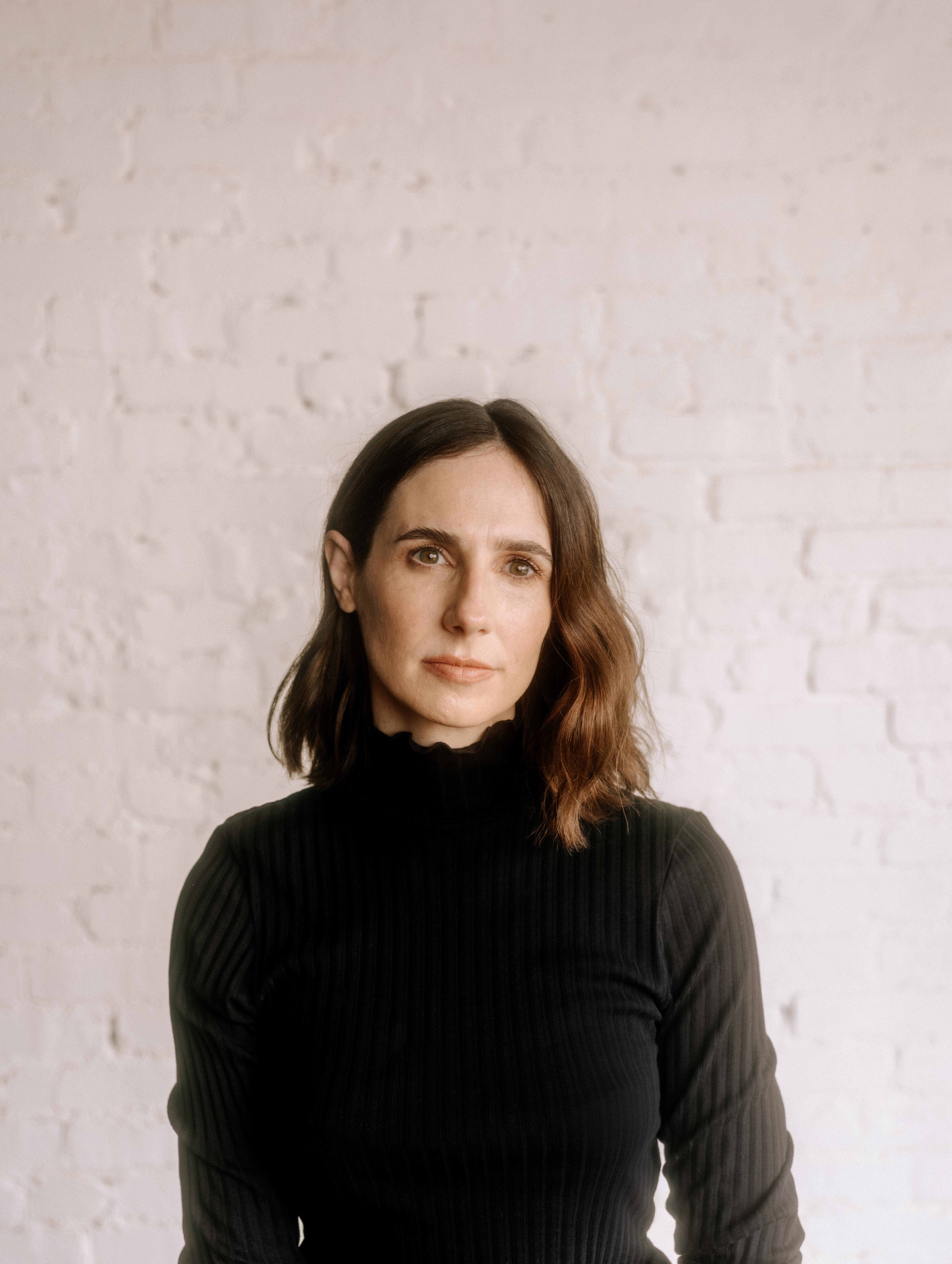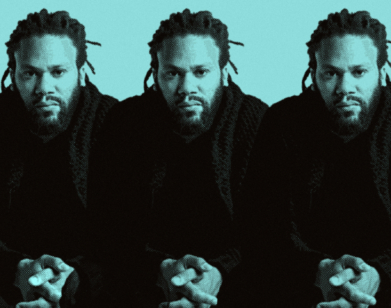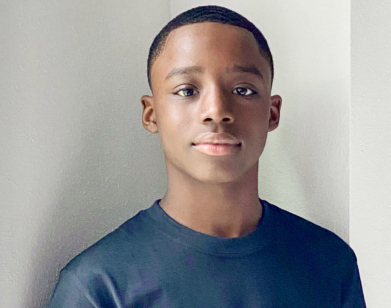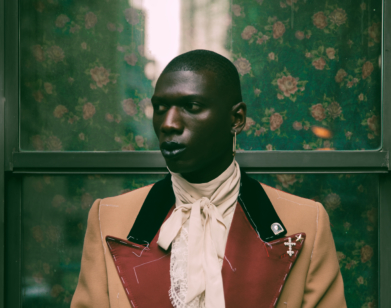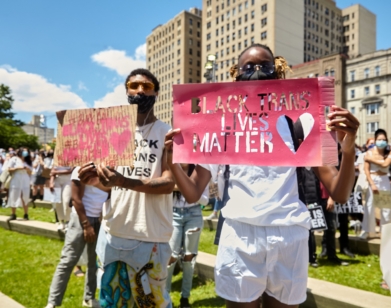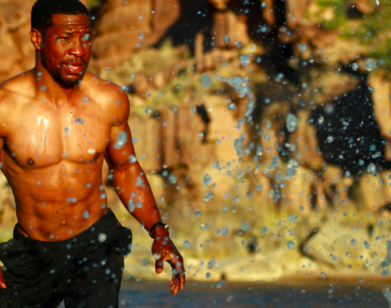memoir
In Health and Safety, Emily Witt Writes the First Draft of Recent History
Near the beginning of Emily Witt’s remarkable new memoir, Health and Safety, the author stops taking Wellbutrin and starts flirting with party drugs. The year is 2016—one could easily be forgiven for seeking relief on the dance floor. But what Witt finds is something far more interesting than the transitory highs of a late night on Myrtle-Broadway. She meets the man who’ll become her boyfriend, a tall, thickly bearded party boy five years her junior, but also a vibrant subcommunity of people for whom the pursuit of fun is as much an intellectual project as it is a mode of congress. “It was like we were part of a big, safe bubble,” she writes. “We were in our late twenties and thirties and having friendships in a way we were told that you were not supposed to have as an adult.”
This scene, in more recent years, has become something of a punchline amongst a certain set of irony-pilled, very online New Yorkers: Bushwick, you’ll hear, is the domain of non-binary baristas and grey-market weed dispensaries called “ZaZa City” or “Puff Puff Pass.” But Witt—whose first book, Future Sex, cannily audits sexuality in the age of digital alienation—brings to the club an earnest and streetwise spirit of genuine inquiry. The fashion, she writes, “was meant to cause estrangement rather than to look rich or hot,” and the people involved “shared a nihilism and a sense of humor and a dissatisfaction with a New York of expensive restaurants and Ticketmaster venues.” The pandemic, of course, brought all of this to a halt, at which point the wretched comedown begins. But here, Witt widens the book’s aperture: she gets a job at The New Yorker writing about the 2020 Presidential election and the George Floyd protests, a development that recontextualizes the headlong high of the book’s first section as an impossible and somewhat doomed stay against the violent, real-life currents of power and politics.
It is, for my money, the first truly great book to come out of the pandemic, but also a properly wistful joyride through the good times that preceded it. Earlier this month, Witt joined me to talk about the writers that inspired the project, from Christopher Isherwood to Rebecca West, and what it means to write the first draft of history.
———
JAKE NEVINS: Hey, Emily.
EMILY WITT: Hey, how’s it going?
NEVINS: Doing well, thanks.
WITT: It’s so cool to talk to Interview Magazine. I read it all the time.
NEVINS: I’m so glad to hear that. Well, I’ve been reading you since your Miami party diary in n+1. That might be a good place to start. In what way, if any, did that story prepare you to write Health and Safety?
WITT: Wow. Well, I guess I was always trying to seek out people having fun. I was always interested in what counted as fun in a time when a lot of it is really organized in a really kind of corporate way. So I’m always like, “Okay, what’s the nature of the party?” Especially because people maybe organize their identities around what kind of parties they go to. Back in the day, in Miami during the real estate boom, it was these really artificially orchestrated real estate events that everybody would go to for the free drinks. And it turned out the whole thing was just part of the irrational experience of the coming economic crash. And then I guess I wrote about Burning Man. Personally, I had fun there. I couldn’t help it, but I could also see all of the reasons why it was pretty heavily criticized. And in Future Sex, [I was] looking at how people organize their sexual identities. And the scenes in Berlin and Bushwick both felt very specific to its time. So I think that’s part of it: looking at what feels a little bit new and different about a particular moment.
NEVINS: Well, that’s a good segue into something I wanted to ask you about. Recently, I interviewed the writer Geoff Mak about his book Mean Boys. And that book, coupled with yours and also Raving, by McKenzie Wark, struck me as really interesting attempts to memorialize what you might consider very recent history: basically, the 2010s up to the pandemic, and the different subcultures and phenomena therein. There’s this old adage that in order to properly convey a scene or a moment, one has to have adequate distance from it. I’m curious if that’s a notion you subscribe to.
WITT: There’s something to be said for writing that’s a little bit of a first draft of history. And it might not stand the test of time, it might really fail it, actually. It always feels like something’s kind of looming on the horizon, and it definitely really felt that way in the past few years. I think we all lulled ourselves for a couple of months into thinking, “Oh, everything’s going to be fine,” but in fact it might not be. And as I say in the book, I was really interested in these books written in the ’30s in different parts of Europe, many of them either travelogues or first-person essayistic recollections.
NEVINS: Which ones?
WITT: Well, not only [Christopher Isherwood’s] Berlin books, but also this collaboration called “Sonnets from China” where he and W.H. Auden were in China before World War II. Auden is writing these sonnets and Christopher Isherwood is writing prose. It’s kind of an amazing book. They don’t know what’s coming, so they’re just kind of jotting down the details. Or Rebecca West’s Black Lamb Grey Falcon, which I’m not going to pretend to have read all of. She’s just traveling around Hungary and then it turns out that, a few years later, everything she was describing was gone. Or Natalia Ginzburg in Italy. I liked these books. And for me, the pandemic provided a little break in history that allowed us to kind of eulogize or summarize a moment immediately preceding that. So maybe that’s what I tried to do here.
NEVINS: That brings me to structure, which is working really well in this book. I imagine it must have been deliberate, the way the first and second halves of the book almost mirror the high and the comedown of a party drug.
WITT: Well, chronology is always your friend. The book really does just move through time, but there are some diversions. I think the big break in the book comes when I get this job at The New Yorker and I start doing a lot of political reporting. That changes the writing style [in the book] because that changed my writing style. It changed how I spent my time, too. And in the first half of the book, I’m just trying to ignore everything. I don’t want to pay close attention to the news. And then suddenly, I’m producing the news, and then the news really makes its way into my personal life, as I think it did for all of us in this really accelerated way in 2020. Not only because of the pandemic, but also because of the political uprising, because of the election that was taking place, because our social lives were suspended and suddenly the news was our only channel of perceiving the world. Of course, it made us all insane. But the writing was really straightforward. I was kind of just writing down what happened in the order that it happened.
NEVINS: In addition to changing your writing style, as you said, the New Yorker job also introduces some tensions that you have to negotiate, particularly as it concerns the George Floyd protests. There’s something so present and carefree about the early sections in the book, where we see you trying ayahuasca, or you’re at Bossa Nova meeting the man who’ll become your boyfriend. But then your subject position changes, as does the state of the country.
WITT: Yeah, so this was really like, my first official journalism job at a time when everybody on the right and the left really hated journalists and their pretenses toward centrism and objectivity. There was a sense on all sides that it was only a posture, and that it was corrupt, and that if you kind of upheld that ideal then you were just a lib who was blindly supporting injustice and providing the rhetorical justification for it. That’s a cute posture to adopt on social media, but I guess what I realized was that there was some value in really trying to inhabit the role of the observer instead of the participant, and that I was almost constitutionally unable and to let go of that subject position, in part because what I saw around me was an outpouring of genuine feeling by a lot of people in Brooklyn who were out in the streets protesting. But there was also a lot of posturing, and a lot of scolding and appropriation of anger that certain people weren’t actually entitled to. I felt like it was more important to me to be aware of that than to let all of that go.
NEVINS: And that’s the other thing that’s so utterly contemporary about this book, and one of the more annoying aspects of being alive today, which is the way people spend just as much time thinking about the integrity of their political positions as they do actually advocating for or adopting them. There’s this fascinating section at the end where your ex-boyfriend, Andrew, speaks on behalf of the folks who were manhandled by the cops at the George Floyd demonstration. Here, you sort of conceive of yourself as the white, liberal woman who he now gets to dispose of, thereby enhancing his street cred.
WITT: Right. There was for sure this constant and shifting map of purity tests that continues to be presented every day and that you either pass or fail. And I think the tragedy of it is that they’re very performative. I don’t know how substantive these tests really are. It just often seems misguided. And meanwhile, power is operating in a totally other sphere at a totally different level. And I think a lot of it was the sense then, and the continued sense, that your political views have no bearing on the way the world operates, so all you can do is make these gestures and consumer choices. But the structures that carry out climate change and war and everything else just seemed to be operating on their own momentum. So these things become copes, I guess, or substitutes. They occupy so much energy, and they’re related to the kind of division of the online self and the real self, too; you can portray your life, but then there’s your actual life. You can portray your politics online, and then there’s the lived reality of the thing. It seemed a mistaken use of energy to me.
NEVINS: In the book, the only space that seems free of these considerations, at least momentarily, is the dance floor. And here, especially vis-à-vis the events depicted later, you do a really nice job of capturing the sense of salvation that partying can provide.
WITT: I don’t know if it’s still this way, but I think for a lot of us that were around in those years and experienced those parties, they felt like this secret life. There was this kind of New York City surface life, and then we had this other life that refused portrayal online at a time when everything was about vain shitposting, and it just did not translate to that. There was a politics of refusing that, and kind of a celebration of not being popular, of not getting as many likes as possible. I’d always felt kind of alienated by social media, so it felt comfortable to find a place that felt really outside of it for a little while. I don’t know if that’s still true, though.
NEVINS: Not really.
WITT: It’s so funny, because it’s Fashion Week right now and I was walking around the Lower East Side and everybody is producing content. Everybody’s clothes just seemed so algorithmically generated. Their whole personalities seemed like, “Oh, this is what Instagram sold you.”
NEVINS: You take the subway and you see people with these stupid phone cases that stick to the wall so they can film themselves. One day, they’re going to get pushed onto the tracks.
WITT: It depresses me.
NEVINS: Anyway, I’m a huge fan of Future Sex. I read it in grad school. On a sentence level, can you talk to me about how you approach writing about drugs versus writing about sex?
WITT: Well it’s funny, because Future Sex doesn’t have that much sex in it.
NEVINS: But there is like, orgasmic meditation.
WITT: Right, and there’s definitely some fisting. I was kind of inspired to write that book by reading Thy Neighbor’s Wife by Gay Talese. It’s like this cultural history of the sexual revolution, and there’s so much gross, sticky sex writing in the book. I was like, “I don’t think I need to put so much detail in,” because I thought that with sex writing, the more removed I could be, the better, maybe. And then with the writing about drugs and music, I wanted it to read vividly as those experiences were. I think I just tried to use plain language and not technical language.
NEVINS: I liked your verbs a lot. It’s just so easy to be like, “The music pulsed…”
WITT: Well, with music, I basically wanted to avoid a kind of encyclopedic approach like, track ID, BPM music voice, because I don’t have that kind of technical expertise and because I don’t think it’s helpful to the lay reader. It doesn’t mean anything. So with that, I was very deliberate in trying to use metaphorical language. And with the drug stuff, it’s tricky. Describing a dream is always inherently boring, so I tried to really pare it back. I didn’t want the reader’s eyes to glaze over, and I wanted to be self-aware in that I’m describing things that aren’t real but felt so real, like the mushrooms. I wanted to give the skeptical reader space for that disbelief and to indicate that I didn’t fall in. That way, I could both be like, “Okay, maybe this is just some chemical reaction in my brain,” and at the same time, “I had this completely mystical experience but I’m not going to surrender myself to it. I’m going to look at it kind of clearly, but not go into preacher mode about it.”
NEVINS: I’ll leave you with this. At one point in the book, I believe you’re celebrating the release of Future Sex and you write about the total pageantry of book tours. You say, “A book fixed one’s thoughts and opinions on a particular moment in time. As time passes, the thoughts and opinions might change, but the book stays the same and one is expected to repeat its idea with certainty and confidence.” So, now you’re promoting a new book. How does it feel?
WITT: Well, it’s the same. [Laughs] The main thing right now is, I hate speaking with any kind of authority on a scene or music. I think that’s partially what’s making me uncomfortable at the moment, because I definitely was just a person that went to parties where there were people that were really throwing the parties and living the thing. So that’s kind of where the feeling of anxiety is coming right now. And this book is so much-
NEVINS: Have you been accused of like, not being properly deferential to the party girls? I’m pretty sure you shout everyone out.
WITT: I’m scared of that. But nobody has said it to my face. Future Sex was a pretty exposed piece of work. And I think because it was my first book, I was just scared. I was way more confident with this book with going way more first-person. I’m like, a really opinionated person. And sometimes when I read this book I’m like, “God, I’m so didactic and maybe a little supercilious” or something. I pictured myself annoying people or changing my mind and later having to live with it. But that’s every single thing I’ve ever written, to be honest.

